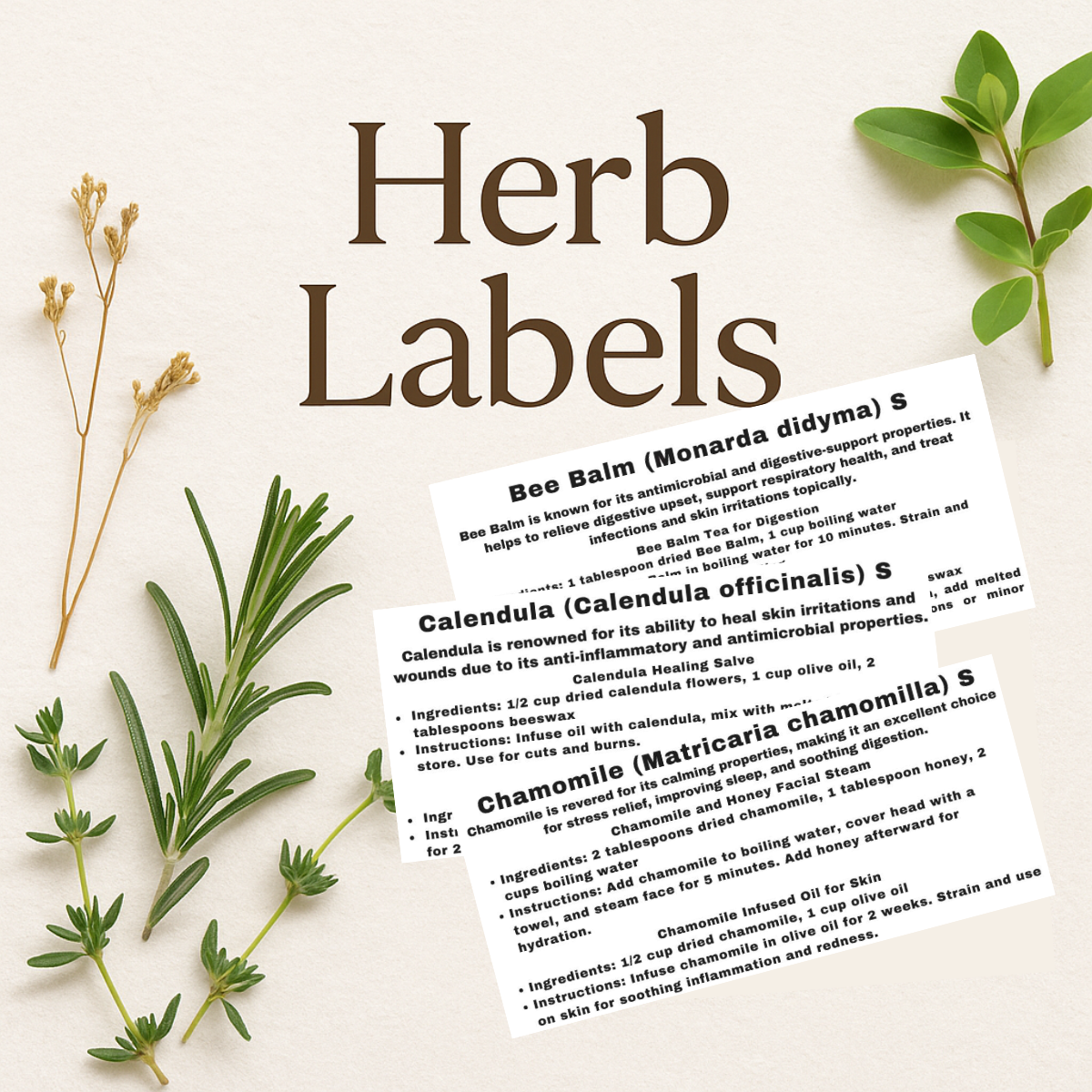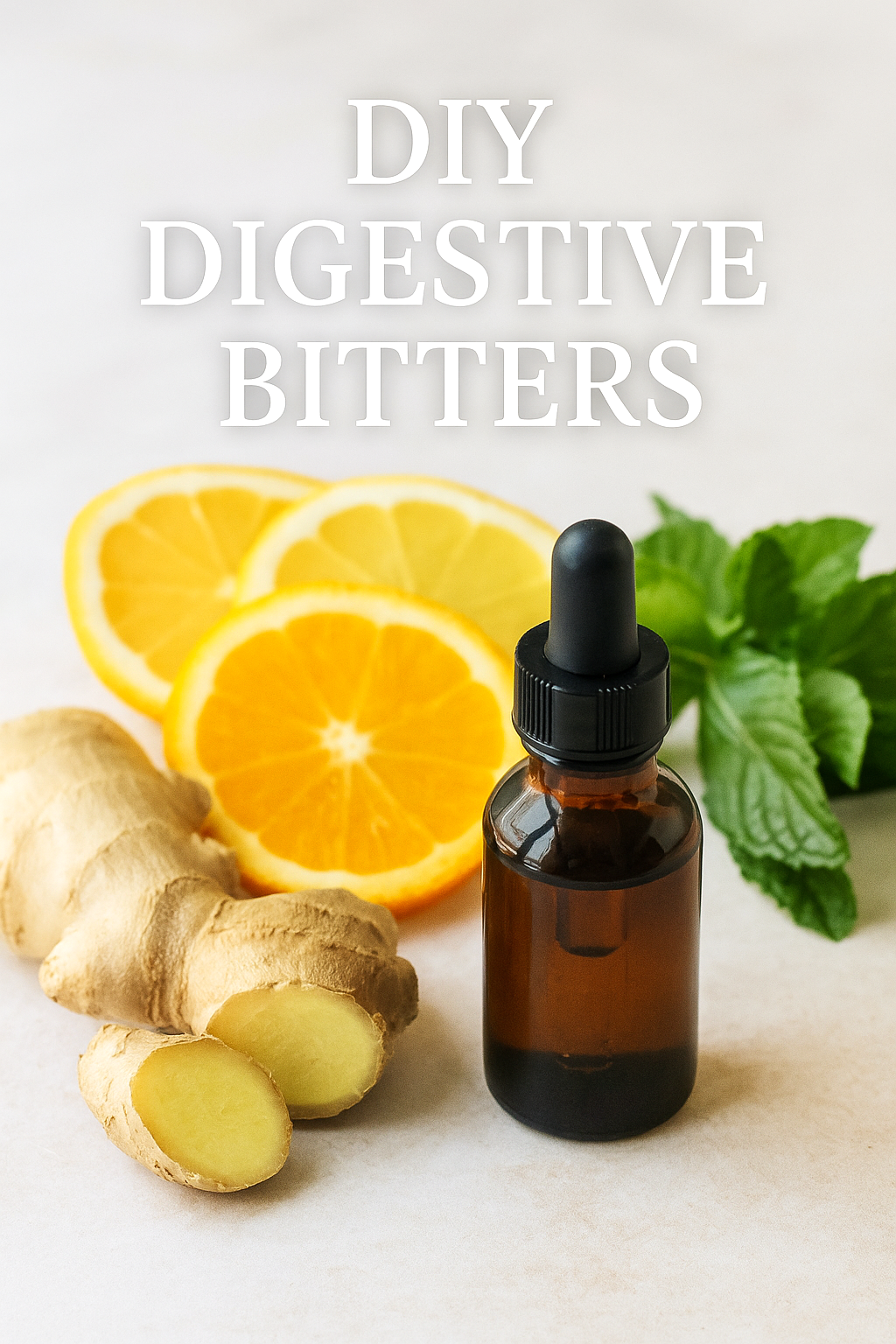Digestive Ginger and Peppermint Tincture
I used to reach for over-the-counter remedies every time my stomach felt off, thinking herbal solutions were too complicated or wouldn't actually work. Then I learned how simple it is to make a digestive tincture that actually helps. Digestive discomfort can be a common issue, but nature offers powerful remedies that have been trusted for generations. This week, we're creating a soothing digestive tincture using ginger and peppermint. Both herbs are known for their digestive properties, ginger helps reduce nausea and inflammation, while peppermint eases bloating and relaxes the digestive tract. This simple tincture is perfect for keeping on hand to support digestive health naturally.
Is This Project For Me?
If you're tired of dealing with occasional digestive upset and want a natural option that actually works, this is for you. You want something you can keep in your medicine cabinet that doesn't have a long list of ingredients you can't pronounce. This works whether you're new to herbal remedies or you've been curious about making your own tinctures but didn't know where to start. You'll need high-proof alcohol and fresh or dried herbs, but the process is much simpler than you'd expect. If you like the idea of having a gentle, effective remedy made with your own hands, this belongs on your list. See below for a free printable Tincture and Usage Guide.
Get The Labels
Ready to stop guessing what's in those unmarked jars? Get labels that actually help you navigate your herbal collection. These printable labels are designed for real kitchens with clear, readable type and the essential info you need right at your fingertips, no more squinting at faded handwriting or wondering if that's oregano or something you shouldn't put in your soup.
Disclosure
Some links on FiberMaiden are affiliate links. When you click and purchase, I may earn a small commission at no extra cost to you. I partner only with brands and tools I trust and use in my own kitchen, studio, and garden. Your support means a lot.
Disclaimer
I share what I use in my own home apothecary so you can learn and get inspired. This is education, not medical advice. Everyone’s body is different, especially with allergies, medications, children, and pregnancy. Patch test, start small, and talk with your doctor.
Get 3 Free Recipe Sheets
Want recipes that actually work in real kitchens? Join the club for seasonal recipes that won't leave you guessing.
Troubleshooting and Safety
Let's talk about what might have you wondering if you did something wrong, because tincture-making can feel mysterious at first. Cloudy tincture after straining? I worried about this with my first batch, thinking I'd somehow contaminated it. A little cloudiness is normal, especially with fresh herbs that contain water. If it's really cloudy, strain it through a coffee filter for a clearer result.
Not strong enough after the full steeping time? Your herb-to-alcohol ratio might have been too low, or your alcohol wasn't high enough proof. Aim for at least 80 proof vodka and pack those herbs in well. You can always add more herbs to the same batch and let it steep longer.
Tincture tastes too harsh? That's often just the alcohol hitting your taste buds. Try diluting a few drops in water or juice, or put it under your tongue and chase it with water. The medicinal benefits are the same either way.
If your herbs turned brown or black during steeping, that's usually normal oxidation, especially with fresh herbs. As long as there's no fuzzy mold growing, you're fine. Trust your nose it should smell like concentrated herbs and alcohol, not funky or off.
Frequently Asked Questions
What is a tincture
Why ginger and peppermint
What kind of alcohol should I use
How long should the tincture steep
How do I take it
Can I make an alcohol-free version
How long does it last
Tinctures & Uses (Printable)
One-page reference for common tinctures. Educational only. Not medical advice.
| Tincture | Common uses | Simple notes |
|---|---|---|
| Ginger | Nausea, motion discomfort, digestion | 30–60 drops in water as needed |
| Peppermint | Gas, cramping, tension | 20–40 drops; avoid with reflux |
| Chamomile | Calm, sleep, tummy upset | 30–60 drops; gentle |
| Lemon balm | Stress, focus, viruses | 30–60 drops; calming |
| Echinacea | Immune support at onset | 30–60 drops every 2–3 hours day 1–2 |
| Elderberry | Immune support, seasonal | 30–60 drops 2–3× daily |
| Valerian | Sleep, restlessness | 20–40 drops; can be sedating |
| Skullcap | Nerves, muscle tension | 20–40 drops 2–3× daily |
| Hawthorn | Heart tonic, circulation | 30–60 drops with meals |
| Milk thistle | Liver support | 30–60 drops 2–3× daily |
| Turmeric | Inflammation support | 30–60 drops with fat and pepper |
| Calendula | Lymph, skin support | 30–60 drops 2–3× daily |
| Dandelion root | Digestion, liver | 30–60 drops before meals |
| Motherwort | Stressy heartbeat, calm | 20–40 drops; bitter |
| Ginger + Peppermint | Digestive discomfort, gas | 20–40 drops after meals |
Typical dosing assumes a 1:5 tincture. Adjust to your context. For education only.




/https://media.azurestandard.com/files/bc3fb923-8ebc-46bb-b8b9-3f9308cb4e6d)








